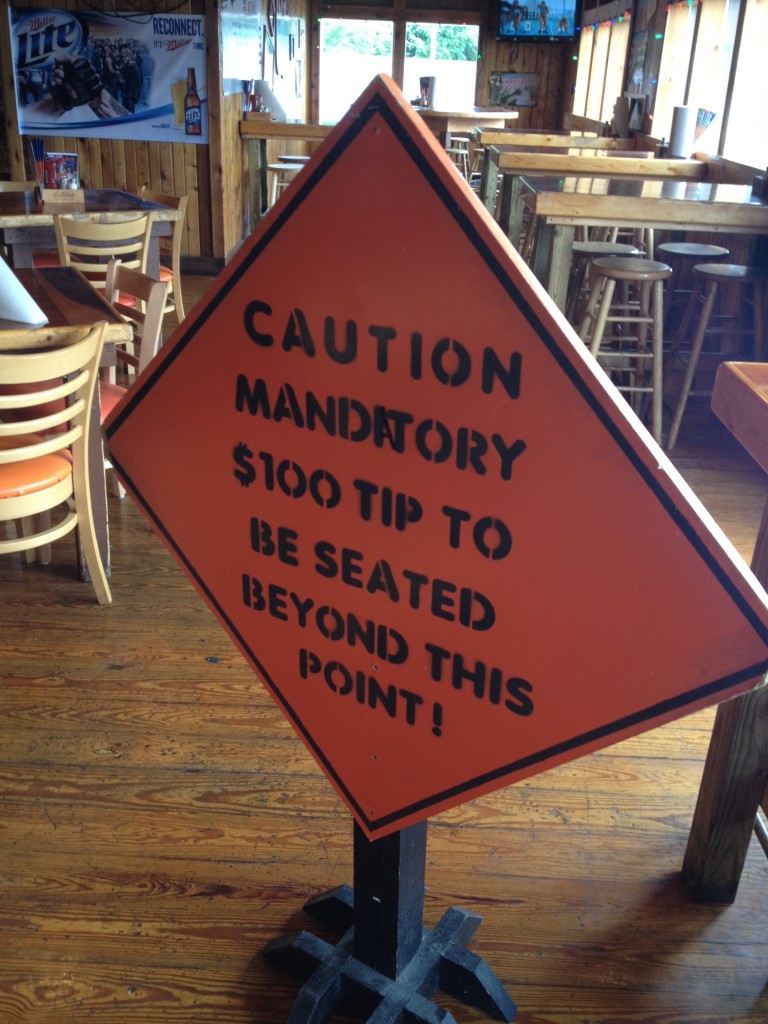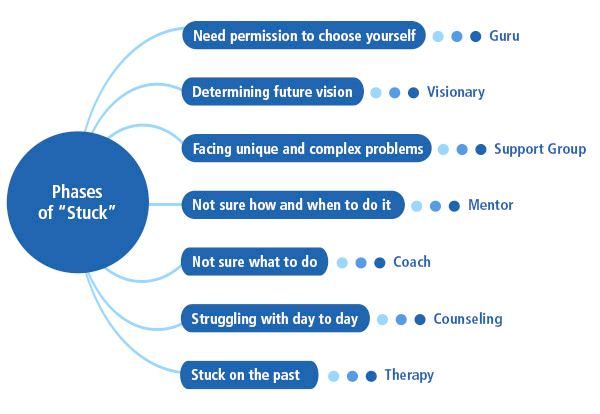On telling people no…
Hooters has an interesting way of telling people not to sit in unused areas of their restaurant. Rather than telling them no, they tell them there is a cost. It’s rather tongue in cheek, but I have seen people sit past the sign AND tip the $100.00.
Why?
Because someone told them it was an option.
I met with the owner of a retail shop a few weeks ago and she told me she was reluctant about having a website or any type of social media presence because people might suddenly begin calling her and asking her to ship products. Of course, I questioned her, and she responded by saying, “I won’t ship. It’s too much trouble, and I don’t always have what they want. I hate telling the customer no.”
It’s okay to say “we don’t” but there’s never a good reason to say “we won’t.”
Shouldn’t we all take the Hooters “Mandatory $100.00 Tip” approach in our businesses?
Instead of “we won’t ship” how about “we ship, but there is a $20.00 handling fee.” It doesn’t work for everyone, but it may work for you.
My friend in the construction business once told me that his company made close to half of their profits each year on over-bidding on jobs they didn’t want in the first place. “We learned to bid EVERYTHING. If we didn’t want it, we’d ask “why?” and then bid the job the way we would have to have it to make a profit. Often, we’d build a 10% cushion on top of that, just for the pain in the ass.”
If you knew you had a global marketplace, what premium product or service would you offer?
What high-margin product could you manufacture if someone placed the order?
Instead of asking what if, today you can throw it at the wall and see what sticks.
It’s the only way to innovate… it’s the best way to stay sharp and stay ahead in your industry.
You’re smart enough that you have something to teach someone. Something valuable that they would compensate you for. Let your customers know what it is and what it costs… make sure it passes the four filters, then float it and see if anyone wants to buy.
If you don’t, they won’t.

